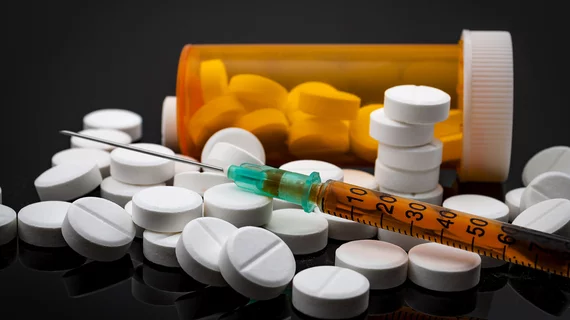HHS directs $400M to battle opioid abuse epidemic
HHS is stepping up its efforts to support the end of the nation’s opioid abuse epidemic, which claimed nearly 70,000 lives in 2018. The agency has awarded $400 million through the Health Resources and Services Administration (HRSA) to fund community health centers, rural organizations and academic institutions to develop and expand services to combat the crisis.
HRSA-funded centers are a key piece in HHS’ strategy to improve opioid abuse, according to HHS Secretary Alex Azar, who introduced the funding in a recent speech. From 2016 to 2018, the number of patients receiving medication-assisted treatment from these health centers rose 142%, and the patients receiving buprenorphine––a form of MAT––increased 28%.
“Health centers and behavioral health providers are on the front lines of the fight against the opioid crisis and substance abuse, especially in rural communities,” Azar said in a statement. “With our evidence-based strategy, HHS is working to support local communities in fighting back against substance abuse, and our united efforts are yielding results. Together, we can end our country’s opioid crisis and lay a foundation for a healthier country where every American can access the mental healthcare they need.”
Specifically, the agency is awarding $200 million to more than 1,200 health centers across the nation to boost access to integrated behavioral health services. Another $111 million is awarded to 96 rural organization in 37 states under the Rural Communities Opioid Response Program; $70 million is direct to Opioid Workforce Expansion Programs (OWEP) for professionals and paraprofessionals; and $17 million will fund grantees in the Graduate Psychology Education Program.

